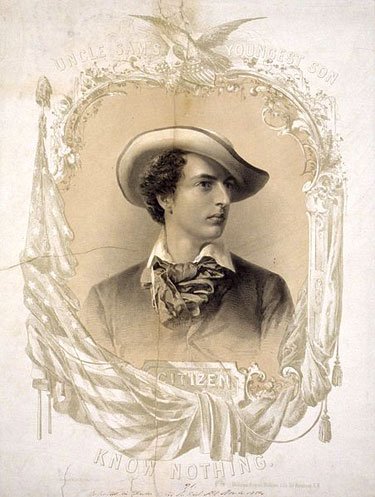Category Archive 'Politics'
03 Oct 2017


Daren Jonescu explains that that is what Progressives do.
Within hours of a man carrying out a horrifyingly successful mass shooting in Las Vegas, in which the death toll as of this writing is almost sixty, Democrats are out in public demanding gun control legislation. As disgustingly cynical as this is, it is not in the least bit surprising. Many more will join the chorus in the coming days, while a complicit news media will keep the horror fresh to facilitate the Democrats’ exploitation of sadness and pain.
Never wishing to appear to their neo-communist handlers as weaklings inclined to put humanity before politics, or willing to pre-empt the revolution out of respect for human suffering, progressive politicians at America’s moment of “fundamental transformation” seem to want to look callous and inhuman, even as they claim to represent the interests of the suffering and downtrodden.
Rahm Emanuel’s infamous cat-out-of-the-bag moment – “never let a crisis go to waste” – has quickly evolved from an awkward instance of progressive self-revelation into the proud mantra of the American left. Leftists are no longer even ashamed at the old accusation of “politicizing a tragedy.” Tragedy – the bigger, the better – is the grease in their wheels. Politicizing hardship has always been their stock in trade, and now, through years of practice, they have trained to the public to regard this extreme cynicism as the norm, so that the accusation no longer carries any meaning.
RTWT
14 Jun 2017


Ben Hersh, at Backchannel, discusses the ability of different fonts to make cultural and political statements.
The US is not so different from the rest of the world when it comes to tribalism and conflicted identity. This has crystalized in last few months, and we’ve seen typography play a substantial role.
Hillary Clinton ran for president with a slick logo befitting a Fortune 100 company. It had detractors, but I think we’ll remember it fondly as a symbol of what could have been — clarity, professionalism, and restraint.
Donald Trump countered with a garish baseball cap that looked like it had been designed in a Google Doc by the man himself. This proved to be an effective way of selling Trump’s unique brand.
I’m not interested in whether Clinton or Trump had good logos. I’m interested in the different values they reveal. Clinton’s typography embodies the spirit of modernism and enlightenment values. It was designed to appeal to smart, progressive people who like visual puns. They appreciate the serendipity of an arrow that completes a lettermark while also symbolizing progress. In other words, coastal elites who like “design.â€
Trump’s typography speaks with a more primal, and seemingly earnest voice. “Make America Great Again†symbolizes “Make America Great Again.†It tells everyone what team you’re on, and what you believe in. Period. It speaks to a distrust of “clean†corporate aesthetics and snobs who think they’re better than Times New Roman on a baseball cap. Its mere existence is a political statement.
The two typographies are mutually intelligible at first glance, but a lot gets lost in translation. We live in a divided country, split on typographic lines as cleanly as the Serbs and the Croats.
RTWT
03 Apr 2017


Kurt Schlichter (who has been on a roll lately) predicts the outcome of the fabricated Russiagate scandal.
If you’re stressed out about this whole Russian nonsense, relax – Donald Trump didn’t do anything wrong, and he’s not going be impeached, arrested, or ritually disemboweled. When the truth comes out and it explodes in the Democrats’ soft, girlish hands, we’ll all be laughing and toasting their humiliation with Stoli shots.
How do I know this with utter certainty? Because it’s all so glaringly obvious, and it’s the only scenario that fits the facts. As Hugh Hewitt says, this scandal has three silos. The first silo is the question of whether the Russians somehow “hacked our election.†The second silo is whether any Trump people “colluded†with the Russians. The third silo, the one patriots care most about since it’s the one that isn’t a ridiculous fantasy, is whether anyone in Obama’s administration used our intelligence apparatus to spy on his and Hillary’s political opponents. The answers are “No,†“No,†and “Yes.†The end results are going to be a stronger Trump, weaker Democrats, and various Obama minions exploring new career opportunities in the exciting fields of license plate-making, large-to-small rock transformation, and artisanal pruno distilling.
Read the whole thing.
27 Mar 2017


Dan Greenfield says the current conflict differs from the 19th Century Civil War in that the Left does not wish to secede, it wishes to rule.
A civil war has begun.
This civil war is very different than the last one. There are no cannons or cavalry charges. The left doesn’t want to secede. It wants to rule. Political conflicts become civil wars when one side refuses to accept the existing authority. The left has rejected all forms of authority that it doesn’t control.
The left has rejected the outcome of the last two presidential elections won by Republicans. It has rejected the judicial authority of the Supreme Court when it decisions don’t accord with its agenda. It rejects the legislative authority of Congress when it is not dominated by the left.
It rejected the Constitution so long ago that it hardly bears mentioning.
It was for total unilateral executive authority under Obama. And now it’s for states unilaterally deciding what laws they will follow. (As long as that involves defying immigration laws under Trump, not following them under Obama.) It was for the sacrosanct authority of the Senate when it held the majority. Then it decried the Senate as an outmoded institution when the Republicans took it over.
It was for Obama defying the orders of Federal judges, no matter how well grounded in existing law, and it is for Federal judges overriding any order by Trump on any grounds whatsoever. It was for Obama penalizing whistleblowers, but now undermining the government from within has become “patrioticâ€.
There is no form of legal authority that the left accepts as a permanent institution. It only utilizes forms of authority selectively when it controls them.
A must-read.
07 Dec 2016


Donald Trump doesn’t know how to wear a suit or tie a necktie properly. He is a terrible speaker. He is a tonsorial disaster area. But, Scott Adams may be right about Trump possessing his own unique kind of political genius. His use of Twitter, for instance, is un-presidential, informal, inaccurate, careless, and frequently embarrassing, but he has tens of millions of followers who receive his messages directly, and every time he tweets he drives the establishment media crazy.
Gerard Van der Leun identified the process:
Since the election, Trump has continued to Tweet away. He’s called for Hamilton to be boycotted and flag-burning to be criminalised, and every time the same 10-part pattern unfolds and the whole thing starts again.
Each episode followed a familiar 10-part pattern:
1) Trump posts an inflammatory, highly opinionated tweet.
2) The media goes nuts.
3) Trump’s tweet then dominates the news all day.
4) The media demands he stops tweeting because it’s ‘un-presidential.’
5) Trump ignores them.
6) Conventional politicians demand he stops tweeting because it’s un-presidential.’
7) Trump ignores them too.
8) Trump wakes up next morning to every paper and cable news show talking about his tweet.
9) Trump chuckles to himself.
10) Trump tweets again.
Repeat.
24 Nov 2016


Who better for the image of the pansy Marxist nephew than Hampshire College’s Daniel Vogel, the SJW who pulled down and burned the US flag the night before Veterans Day?
Kurt Schlichter wrote the script enabling you to be That Obnoxious Conservative Uncle this Thanksgiving.
Welcome Him to Dinner: Extend a hearty greeting, like “Good to see you! Of course, when I was 25, I spent Thanksgiving in a fighting position eating reconstituted pork patties, but your part time Chore Monkey gig is pretty much the same. Come on in!â€
Be patient when he inquires whether you have anything “infused†or “curated,†and assure him that “Oh yeah, I got something locally sourced for you right here.â€
Listen intently to his list of dietary restrictions, then helpfully explain that “Your vegan option is not eating.â€
Explain that you won’t let him say the blessing because “I don’t want to hear an invocation to some weird goddess or any other blasphemous crap.â€
Ensure that your prayer concludes “And we thank you for our police and firefighters, and for all our veterans, and for our warriors fighting evil across the globe. May you protect them and grant them total victory over our enemies.â€
Don’t forget to be inclusive! “Oh, and let’s not forget the Chore Monkey guys. They’re heroes too in their own way, I guess.â€
Break the Ice: Show some interest in him and his lifestyle. Politely inquire whether the Chinese character tattoo peeking out from under his doofy scarf means “Never hire me.â€
Ask about his student loans, then do a calculation on your iPhone and tell him “Looks like you should have that all paid off by 2053!â€
Also, make him comfortable by dropping some Millennial-friendly colloquialisms. For example, you can explain that you understand President Trump’s empowering message to normal Americans living outside of the liberal big cities because you are “Hella woke.â€
Finally, inquire into his romantic life, but don’t pry. “No date again this year? So, I’m guessing your vibe is less Tinder, more Grindr?â€
Give His Views the Respect They Deserve: Normally, when he tries to speak you would look at him and say “Shhh. The men are talking†– a “man†being someone who is both over 18 and not still living on mommy’s futon in the basement.
But if you do decide to amuse yourself by letting him talk, be sure to respond to whatever he says with “Is that what they taught you in your gender studies seminar?†And if he insists that “Hey, I was an engineering major!†respond “Oh, what do you build? Safe spaces?†and start giggling.
Understand His Sensitive Feelings About The Election: Hillary Clinton’s loss was a blow to many millennials, and he is likely to be emotionally fragile. You’ll want to ruthlessly exploit his pathetic weakness.
Always refer to “President Trump†and how he will “Make America great again.†Wear a MAGA hat to the table. Mention the “eight years of the Trump administration†and to what Justices Cruz and Willet will do to get the Supreme Court squared away again. Refer to Hillary as “Prisoner No. 59875779.â€
Read the whole thing.
08 Nov 2016

“How small, of all that human hearts endure, That part which laws or kings can cause or cure.”
26 Sep 2016


Tim Black argues that choice of life-style has become politicized which in turn has inflamed politics.
In one of his last speeches as Labour leader in 2006, [Tony] Blair said that the new debate in politics was not left against right, but ‘open vs closed’ – openness to immigration, to diversity, and so on. And he was right. Politics has been waged as a war on those with supposedly ‘closed’ minds, those who ‘cling’ to older traditions and rituals, those who, in the case of Brexit, prefer a national democracy to a transnational oligarchy. And this year, the ‘closed’ fought back.
But there’s something else, too. Not only has culture been completely politicised, and turned into an object of public contestation; politics has also become culturalised, aestheticised. It has been turned into a way of expressing oneself, of marking one’s distinction to others, of showcasing one’s superior political taste – a question, as one Guardian journalist put it, of ‘who we are’. Being political today – whether that involves expressing one’s feminism, or proudly proclaiming ‘black lives matter’ – has become a way of saying something determinate not about the world, but about oneself, and, in the process, negating others. Conservative lettrist Joseph Epstein calls this new political type ‘the virtucrat’ – ‘the new prig… [who] will nail you for not having his opinion on Israel or the environment’. He is ‘a moral snob’, Epstein continues; ‘not only is he smug about the righteousness of his views but he imputes bad faith to anyone who doesn’t share them’.
And this is a profound problem. The aestheticisation of politics, the emergence of an intense political snobbery, lends debate an intractable, compromise-defying quality. It comes to appear not just as a conflict between utterly incompatible ways of life, but also as an intensely personal conflict, where arguments take the form of personal insults, and electoral defeats are experienced as personal affronts. In the strangely emotional reaction of Remainers to the referendum result, which included vituperative columns about racists in our midst, public tears and, absurdly, post-vote marches, one can see the the flipside of the polticisation of culture and lifestyle; the stylisation of politics, its mutation into a means not of winning the support of others, but of asserting their inferiority, of casting their lives into arbitrariness.
Read the whole thing.
Hat tip to Matthias Storme.
18 Aug 2016


Rod Dreher reviews Yuval Levin’s The Fractured Republic: Renewing America’s Social Contract in the Age of Individualism:
According to Levin, the great conceptual barrier to reforming and modernizing American politics is baby boomer nostalgia for the 20th-century Golden Age of their memories. He writes:
Democrats talk about public policy as though it were always 1965 and the model of the Great Society welfare state will answer our every concern. And Republicans talk as though it were always 1981 and a repetition of the Reagan Revolution is the cure for what ails us. It is hardly surprising that the public finds the resulting political debates frustrating.
What neither side can see is that they expect the impossible. Generally speaking, liberals want maximal individual liberty in personal life, especially on matters related to sexual expression, but demand more state involvement in the economy for the sake of equality. Conservatives desire maximal economic freedom but lament the social chaos and dysfunction—in particular, the collapse of the family among the poor and working classes—that afflict American society. The uncomfortable truth is that what each side loathes is the shadow side of what it loves.
As Alan Ehrenhalt pointed out in The Lost City, his 1995 book about Chicago in the 1950s and 1960s, contemporary people lie to themselves about what things were like in the Golden Age. The thick social bonds and sense of community Americans enjoyed back then came at a significant cost—including cultural conformity and a lack of personal and consumer choice—that few of us today would tolerate. Ehrenhalt wrote that beginning in the 1960s, however, Americans embraced “the belief in individual choice and suspicion of any authority that might interfere with it.â€
America’s political, social, and economic life of the last half-century has been a working-out of that belief—thus, the Fractured Republic. The inability of the U.S. political class, now dominated by boomers, to deal with the consequences prevents them from coming to terms with realities of the 21st-century world. We are stuck in what Levin describes as a “politics of dueling nostalgias.â€
Read the whole thing.
13 Jul 2016


James Taranto, in the Wall Street Journal, delivered a devastating rebuke to Justice Ruth Bader Ginsburg’s recent political indiscretions in the course of a New York Times interview.
Ginsburg’s comments about Trump, which were somewhat vague if you read them closely, were less objectionable than many of the other things she said in the same interview. She also damned the Senate for declining to take up the high-court nomination of Judge Merrick Garland: “ ‘That’s their job,’ she said. ‘There’s nothing in the Constitution that says the president stops being president in his last year.’ â€
That’s literally true, but there’s also nothing in the Constitution that says the Senate stops being the Senate under any circumstances. Ginsburg is making a one-sided political argument and framing it as a constitutional mandate. Which, come to think of it, isn’t that different from her approach to jurisprudence. National Review’s Ed Whelan offers a backhanded compliment: “Let’s give her credit . . . for exposing, once again, how nakedly political she is.†…
It gets worse still. Liptak asked Ginsburg if there are “cases she would like to see the court overturn before she leaves it.†Her answer: “I’d love to see Citizens United overturned.†In that 2010 First Amendment case, the Federal Election Commission unsuccessfully claimed it had the authority to criminalize the distribution of a film critical of Hillary Clinton, whom Ginsburg has now implicitly endorsed for the presidency.
She also told Liptak that District of Columbia v. Heller (2008), which established that the Second Amendment’s guarantee of the right to keep and bear arms guarantees the right to keep and bear arms, was “a very bad decision,†adding (in Liptak’s words) “that a chance to reconsider it could arise whenever the court considers a challenge to a gun control law.†Lipsky reports that “the Times . . . seemed to want to protect Ginsburg from the fallout from this error of judgment, deleting it from the article until sharp-eyed readers called out the paper and the lines were restored.â€
There’s no indication that Liptak asked Ginsburg if she also has designs on the Third Amendment. But if you wake up one morning and find a strange soldier on your couch, don’t say we didn’t warn you.
And that’s not all, folks. Ginsburg went on to reveal confidential information about the court’s deliberations during the term just ended. She disclosed how the late Justice Antonin Scalia voted in two cases on which the court deadlocked, and she asserted that Justice Elena Kagan would have joined the 4-3 majority to uphold racial discrimination in Fisher v. University of Texas, from which Kagan recused herself. “If Justice Kagan had been there, it would have been 5 to 3,†Ginsburg asserted.
So, to sum up: Ginsburg, in an on-the-record interview, took political positions on the presidential election and a Senate confirmation, indicated that she intends in future cases to vote to curtail constitutional rights, and violated the secrecy of the Supreme Court conference room.
17 May 2016


Roger Cohen finds that everything old is new again: both the anti-immigrant passion of the late-1840s-early-1850s American Party and the America First isolationist movement of the late 1930s. Like Protectionism (which has been discredited for decades and decades after the Smoot-Hawley Tariff provoked a universal trade war which played an important role in the world-wide Great Depression), Nativism and Isolationism have been for a very long time looked upon as discredited political positions, which it would be intrinsically disgraceful and discrediting to embrace.
Donald Trump proved that none of the three grave historic fallacies of American politics was a third rail that killed candidacies any longer. His supporters in general didn’t know their history and didn’t care.
On the evidence, ethnocentrism is a pretty basic human instinct. Band together with your own. Keep the outsider down or out. In the 1850s, at another moment of American unease, the Know-Nothings swept Massachusetts and won mayoral elections in Philadelphia and Washington on a nativist platform to “purify†national politics by stopping the influx of Irish and German Catholics.
Papist influence was then the perceived scourge through which the Know-Nothing movement, as the Native American Party (later the American Party) was commonly known, built its following. Today the supposed threat is Muslim and Mexican infiltration. Or so Donald Trump, the de facto Republican presidential candidate, would have us believe in his “America First†program.
A know-nothing tide is upon us. Tribal politics, anchored in tribal media, has made knowing nothing a badge of honor. Ignorance, loudly declaimed, is an attribute, especially if allied to celebrity. Facts are dispensable baggage. To display knowledge, the acquisition of which takes time, is tantamount to showing too much respect for the opposition tribe, who know nothing anyway.
Any slogan can be reworked, I guess. America First has a long, unhappy history, the America First Committee having pressed the view that the United States should stay out of the war to defeat Fascism in World War II. …
Well, America First is back, tweaked as Trump’s we-won’t-be-suckers-anymore ideology. …
The know-nothings are on the march. But of course they must know something. Millions of people who vote for Trump cannot be wrong. Perhaps their core idea, along with the unchanging appeal of ethnocentrism, is that politics no longer really matter. Celebrity matters.
Power centers are elsewhere — in financial systems, corporations, technology, networks — that long since dispensed with borders. That being the case, loudmouthed, isolationist trumpery may just be a sideshow, an American exercise in après-moi-le-déluge escapism.
Read the whole thing.

Feeds
|














